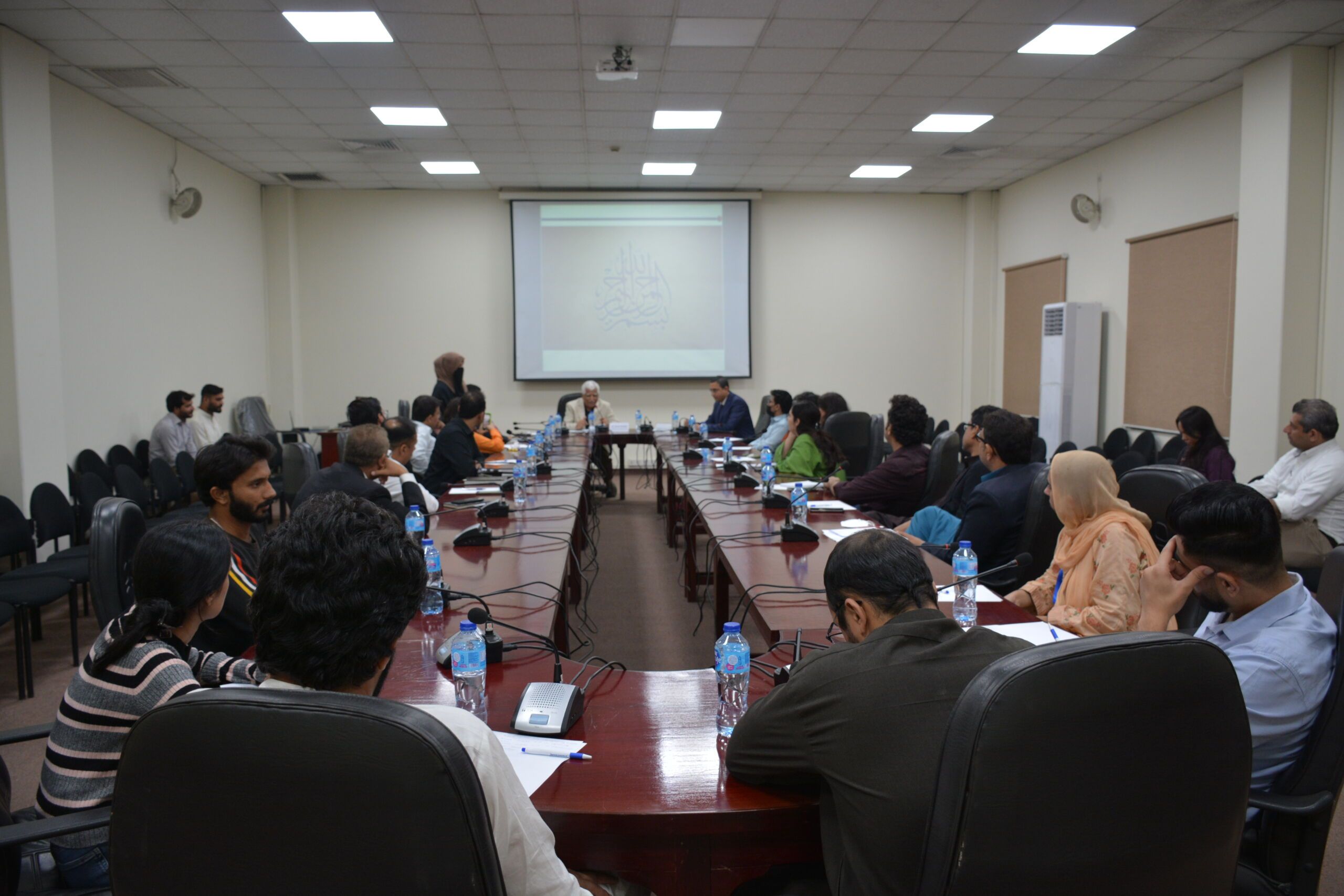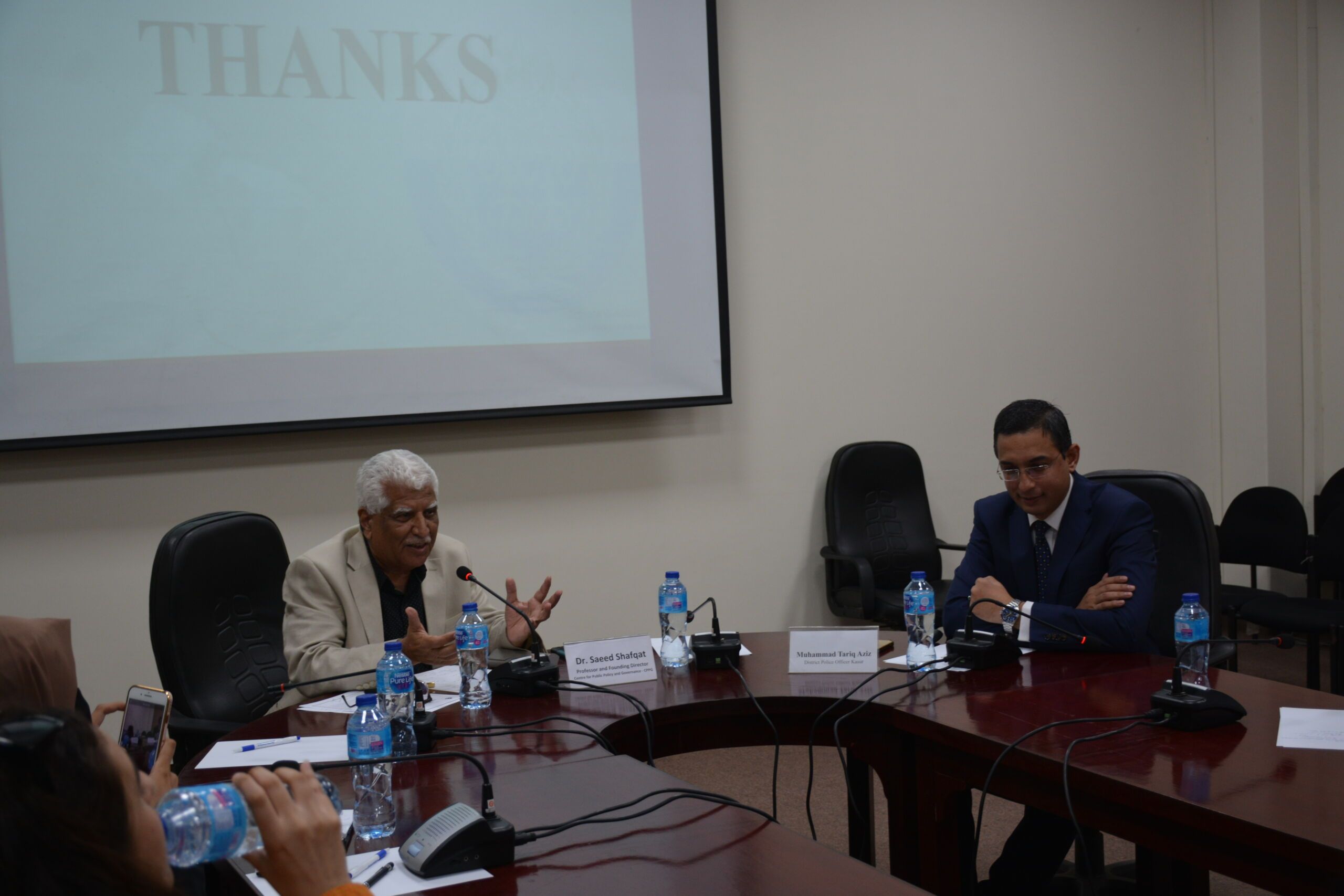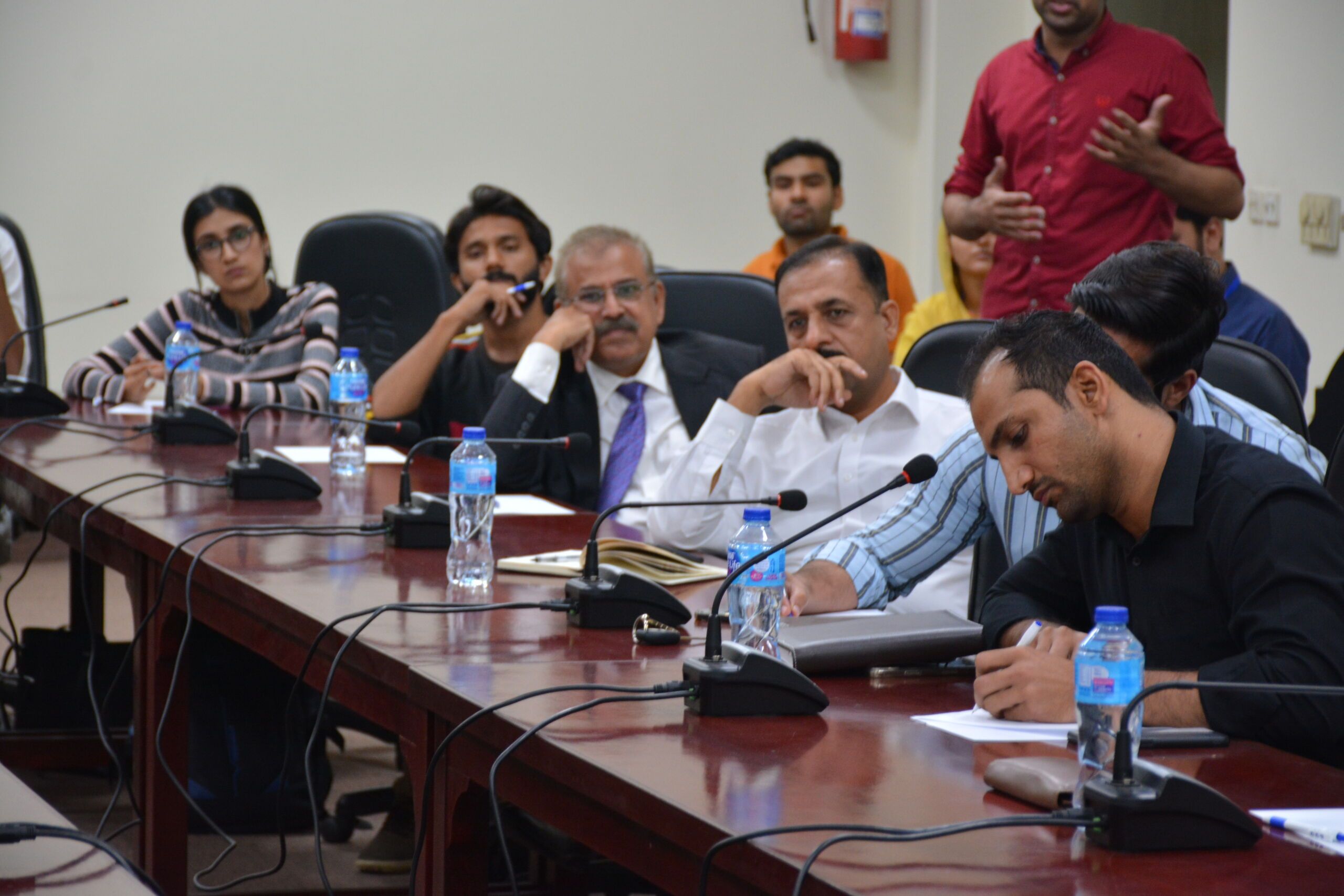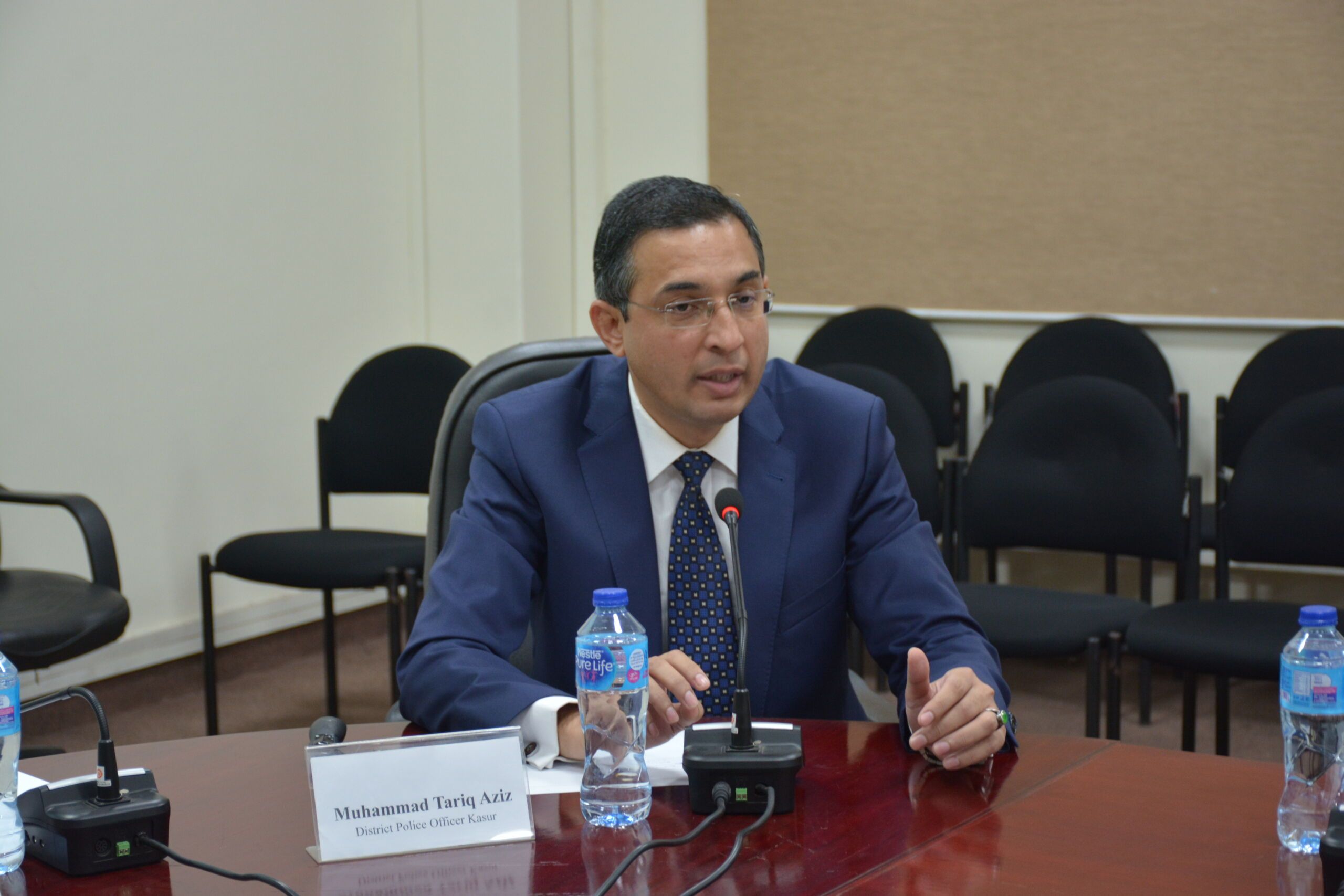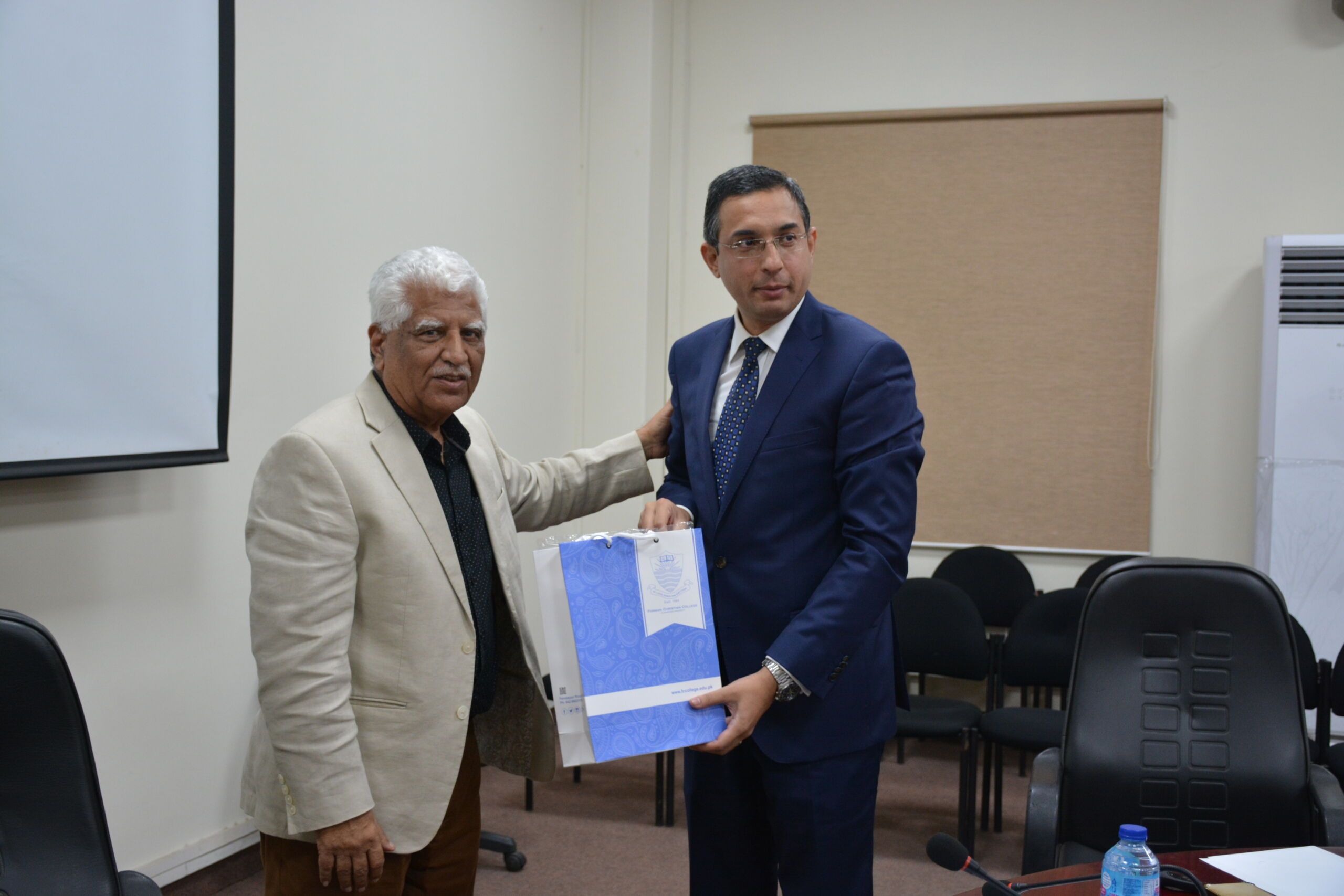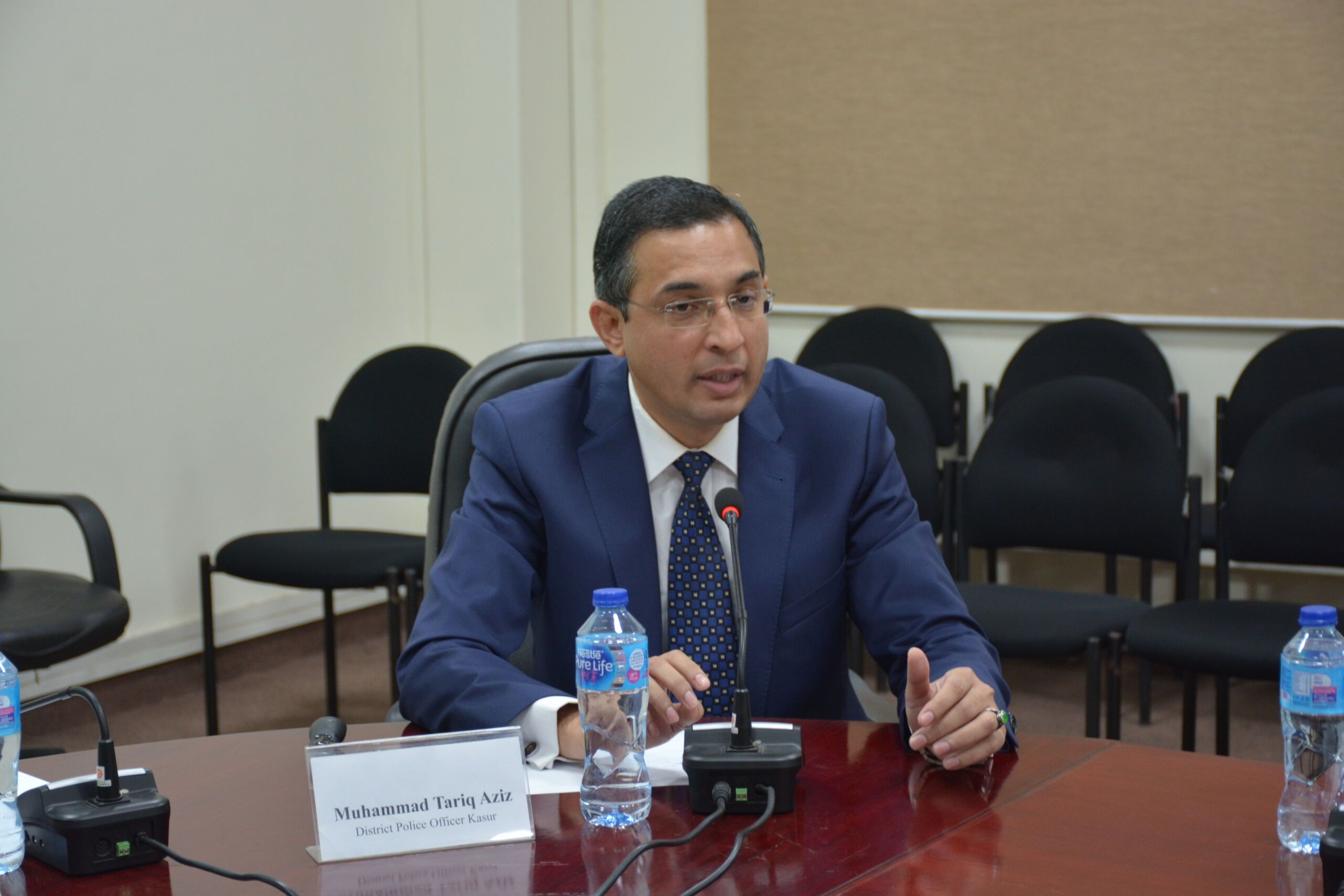
Business Processes Re-Engineering in Police Reforms
Seminar
Past Event
Nov 7, 2023 - 4:00 pm |
Nov 7, 2023 - 6:00 pm
Muhammad Tariq Aziz
E-002 CPPG FCCU
Upcoming Event
On Tuesday, November 7, 2023, CPPG organized a seminar on “Business Processes Re-Engineering in Police Reforms”. Muhammad Tariq Aziz (PSP), currently serving as the District Police Officer (DPO) Kasur, was invited to the talk. Mr. Aziz has held several key administrative , operational, investigative and instructional positions including Superintendent Police of Lahore. He has also been a visiting faculty member at the Police Training College Lahore. The session was moderated by Dr. Saeed Shafqat, Professor, and the Founding Director CPPG.
Mr. Aziz, opened his remarks by admitting that structural challenges have impeded police reforms. However, despite these hurdles, recently the police have launched several modernization initiatives, such as digital monitoring, redesigning of front desks in the police stations (Thanas,) and renewal of lock-up facilities. Elaborating on the structural issues he observed that internal administration, poor public service delivery, traffic management, and hostile media have adversely impacted the performance and reputation of the police. He pointed out that with the introduction and application of digital tools the policing in Punjab and across Pakistan was undergoing transformation through such processes; vigorous social media policies, internal reshaping of administrative processes, crime prevention, and detention, renewed methods of police station record management, functional specialization, and public service improvements.
He underscored the digitization of police stations and police headquarters took place in two phases. Mr. Aziz noted that during 2015-17 the first phase of digitalization of police brought significant transformations. It led to the creation of a Complaint Management System (CMS); equipped with the digitalized version of complaint recording and e-tech response mechanism, a Human Resource Management Information System (HRMIS); the creation of mobile applications for managing human resources, Police Station Record Management System (PSRMS); formation of computer desks and creation of digital case files, and the Criminal Record Management System (CRMS); development of software that aids in detecting the criminal record of any individual.
While in the second phase, the digitalization of police headquarters (2019-2023) brought the automation of headquarters branches (welfare, finance, logistics, etc.), enhancement of application integrations (internal & external), development of mobile applications, and training and capacity building of police staff members.
Delving into the intricacies of digitization, Mr. Aziz provided a detailed insight into the transformative changes facilitated by the Police Record Management System. He claimed that this system ushered in a new era where FIRs are now registered digitally, eliminating the need for traditional paper documentation. Simultaneously, police station registers have undergone automation, enhancing efficiency in record-keeping. The introduction of separate digital case diaries has streamlined investigations, allowing for the continuous monitoring of case statuses. A centralized monitoring dashboard has been implemented, offering real-time oversight of pendency reports and alerts. Additionally, automated SMS and alerts are generated based on the nature of the escalation, ensuring swift and informed responses.
Turning to the Criminal Record Management System, Mr. Aziz shared that a comprehensive digitization effort has occurred, encompassing criminals’ information, fingerprints, and palm scans. This digital inclusion extends to biometric devices and mega matchers, facilitating advanced criminal searches based on CNIC, physical attributes, profiling, crime type, and biometric data.
Furthermore, crime mapping has been introduced where the location and photos of crime scenes are documented for each FIR. This aids in identifying criminal locations and facilitating targeted raids on hideouts. The mapping system also helps to analyze crime frequency and clusters, displaying heatmaps on monitoring dashboards. In addition, the introduction of E-Gadget, a portal designed to monitor resale of the stolen mobile/tablets/laptops, has provided a system where shopkeepers are directly registered. They are advised to record every device that is being bought, sold, and given for repair. Through this, the system is alerted about any tagged gadgets, and the criminals are caught.
Mr. Aziz shared that around 20755 gadgets have been recovered through E-Gadget so far. Complementing this, the E-Police Post system enables efficient snap checks by verifying CNICs, aiding in criminal identification, background checks of stolen vehicles, and on-the-spot seizures. This system contributes to maintaining activity logs, facilitating effective patrolling, and recording recoveries and arrests by the Dolphin Police Force. Furthermore, the introduction of Beat Book software records security-related information for crucial buildings like markets, banks, and jewelers. It also includes details on paved and unpaved roads, documenting buildings associated with street crimes such as hotels, rest houses, markets, and liquor sellers. These innovations collectively represent a significant advancement in policing methods, leveraging technology for crime prevention and efficient law enforcement.
As for Human Resource Management, the HRMIS mobile app has a variety of information and functions. It has information regarding good and bad entries, show cause notices, welfare, shaheed and deceased persons, promotion & rewards, pay and allowances, pension and retirements, training, and attendance. For public service improvement, Integrated Police Khidmat Marakaz have been created. These centers have reduced the burden on the general
police centers. They offer 14 kinds of services such as a copy of FIR, crime report, violence against women report, learner license, loss report, employee registration, medico-legal certificate, vehicle certification, general police verification, character certificate, international driving permit, license renewal, and vulnerable registration. Apart from this, for the protection of minorities and other vulnerable groups, Meesaq Centers have been built which are toiling for the protection of minority rights and promotion of inter-faith harmony. Concluding his presentation, Mr. Aziz remarked that digitalization has reformed and transformed policing in the country and brought significant and much-needed benefits for the police and general public.
The talk was followed by a stimulating Q&A session. Dr. Shafqat thanked Mr. Aziz for sharing his insights about the digitalization of police and transformations it was ushering in the policing system of the country.


